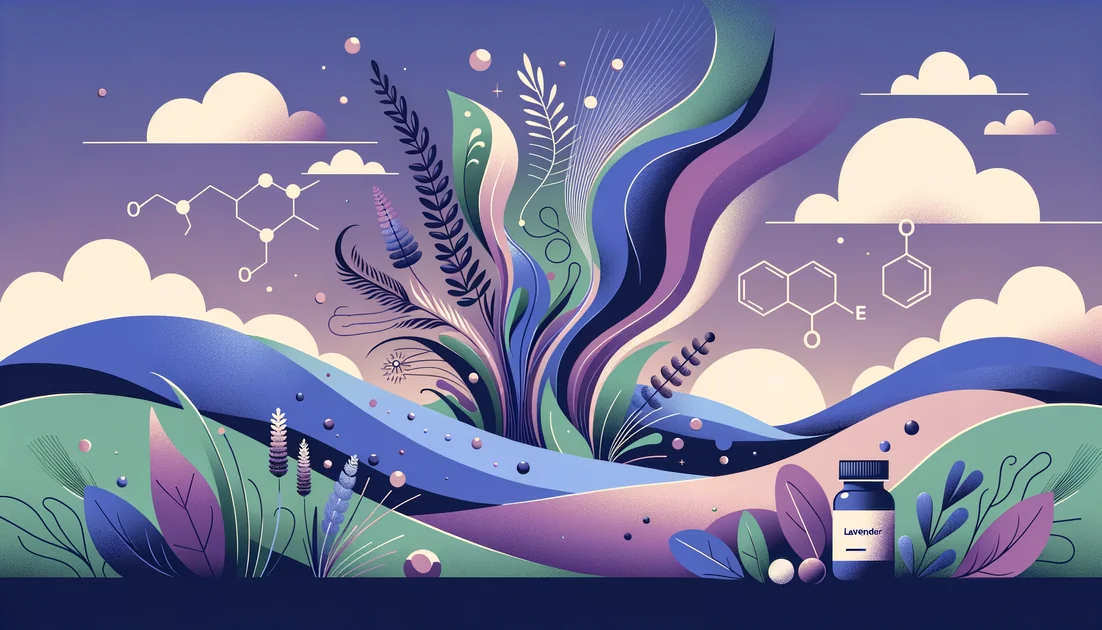
Top 10 Evidence-Based Recommendations
We sifted through 40+ randomized trials and meta-analyses on anxiety supplements, prioritized meaningful effect sizes, speed, and safety, and cut anything propped up by hype. No affiliate fluff—just what actually helps fast and over weeks.
Quick Reference Card
Myo-inositol 12–18 g/day – best for panic [5]
Omega-3 (EPA-dominant) 2 g/day – works at adequate dose [9]
Ashwagandha 300–600 mg/day – helpful but use ≤12 weeks [7][8]
Show all 10 supplements...
L-theanine 200–400 mg – quick situational calm [18][19]
Chamomile extract 1,500 mg/day – gentle daily relief [3]
Probiotics multi-strain ≥10^9 CFU – modest aid [20]
Magnesium glycinate/threonate 200–400 mg – sleep-first support [21][23]
Ranked Recommendations
#1Lavender oil extract (Silexan)Top Choice
The quieting capsule that beat paroxetine in a head-to-head RCT
Dose: 80–160 mg once daily (softgel)
Time to Effect: 1–2 weeks; best by week 4–10
How It Works
Evidence
Generalized 'all-day' worry, physical tension, poor sleep from anxiety
Eructation (lavender burps) in some; avoid non-Silexan lavender products (not interchangeable).
#2Myo-inositolStrong Alternative
The panic-calmer that stacked up to fluvoxamine
Dose: 12–18 g/day in divided doses (e.g., 6 g AM, 6 g PM)
Time to Effect: 1–4 weeks
How It Works
Acts on phosphatidyl-inositol second-messenger signaling, normalizing 5-HT pathways involved in panic circuitry. [5]
Evidence
In a double-blind crossover, 18 g/day myo-inositol reduced weekly panic attacks more than 150 mg/day fluvoxamine during the first month; multiple small trials support benefit in panic/OCD-spectrum anxiety. [5]
Panic disorder and panic-leaning anxiety
High doses can cause GI upset; split doses and build up slowly.
Use powder in water; start 2 g twice daily and increase every 3–4 days to target dose to minimize bloating.
#3Saffron (Crocus sativus)Worth Considering
Mood-brightening spice with real anxiolytic data
Dose: 30 mg/day (stigma extract) divided 15 mg twice daily
Time to Effect: 2–4 weeks
How It Works
Evidence
Mixed anxiety + low mood, sleep-disrupted anxiety
Buy standardized stigma extract; adulteration is common.
#4Omega-3 (EPA-dominant)
Inflammation-taming support that helps at the right dose
Dose: 2 g/day total EPA+DHA, aim ≥60% EPA
Time to Effect: 4–8 weeks
How It Works
EPA resolves neuroinflammation and may upregulate BDNF and modulate HPA-axis tone—mechanisms tied to anxious hyperarousal. [9]
Evidence
Dose–response meta-analysis of 23 RCTs: greatest anxiety reduction around 2 g/day; sub-2 g often ineffective. Safety comparable to placebo. [9]
Anxiety with inflammation/stress reactivity or comorbid metabolic risk
May thin blood slightly; pause 3–5 days pre-procedure if advised.
Choose triglyceride/rewstered-TG forms for tolerability; take with meals to cut fishy burps.
#5Kava (Piper methysticum, kavalactones)
Fast-acting calm—short bursts only
Dose: 120–250 mg kavalactones/day (standardized extract) for ≤6–8 weeks
Time to Effect: 20–60 minutes for acute calming; days for steady effect
How It Works
Kavalactones positively modulate GABA-A and inhibit voltage-gated channels, reducing somatic tension and worry rapidly. [6]
Evidence
Systematic review of RCTs shows higher responder rates vs placebo; best as short-term treatment. Hepatotoxicity is rare but documented, especially with non-root/solvent extracts or prolonged use. [6]
Situational spikes (presentations, flights) or bridging while other aids ramp up
Avoid with alcohol, liver disease, or hepatotoxic drugs; stick to water-extracted root-only products, time-limited. [6]
Use 70%+ kavalactone root-only extracts; reserve for 'event days' to keep risk low.
#6Ashwagandha (Withania somnifera)
Adaptogen with benefits—and new liver cautions
Dose: 300–600 mg/day root extract (e.g., KSM-66 or equivalent)
Time to Effect: 2–8 weeks
How It Works
Evidence
Stress-linked anxiety in otherwise healthy adults
Limit to ≤8–12 weeks; stop if jaundice, dark urine, or RUQ pain. Avoid in pregnancy, hyperthyroidism, or with sedatives. [8]
If sensitive, try lower-dose high-withanolide extracts (60–120 mg Shoden) shown effective in stressed adults. [15]
#7L-theanine
Zen in 30–60 minutes—great for 'edge' without sedation
Dose: 200–400 mg as needed; 100–200 mg twice daily for steady calm
Time to Effect: 30–60 minutes
How It Works
Boosts alpha-wave activity and modulates glutamate/GABA to smooth arousal without impairment. [19]
Evidence
Performance anxiety, meeting/test days, caffeine jitters
May increase sedation with other calming agents at high doses.
Stack 200 mg theanine with your morning coffee to erase 'caffeine edginess' without dulling focus.
#8Chamomile extract (Matricaria recutita)
Gentle, daily calm with cardiovascular perks
Dose: 1,500 mg/day standardized extract (500 mg, three times daily)
Time to Effect: 2–4 weeks
How It Works
Apigenin and related flavonoids bind benzodiazepine sites on GABA-A receptors and reduce inflammatory signaling. [3]
Evidence
In moderate–severe GAD, long-term chamomile reduced symptoms and maintained lower anxiety vs placebo; relapse reduction signal not definitive. Well tolerated; slight BP/weight benefits noted. [3]
Mild–moderate GAD, anxious insomnia, SSRI-intolerant individuals
Allergy if ragweed/aster family sensitive.
Use pharma-grade extracts; tea is soothing but far lower dose.
#9Probiotics/psychobiotics
Gut-brain tune-up with small but real effects
Dose: ≥10^9 CFU/day multi-strain for 4–8 weeks (e.g., Lactobacillus + Bifidobacterium)
Time to Effect: 4–8 weeks
How It Works
Microbiome shifts modulate cytokines, vagal tone, cortisol, and GABA metabolites—nudging anxiety down. [20]
Evidence
2023 meta-analysis of 29 RCTs: probiotics and synbiotics significantly reduced anxiety scores; effects are modest and strain-dependent. [20]
GI-linked anxiety, IBS overlap, low-grade inflammation
Gas/bloating first week; choose clinically studied strains.
#10Magnesium (glycinate or threonate)
Sleep-first support that can lower anxious arousal
Dose: 200–400 mg elemental magnesium nightly; Mg-threonate 1–2 g/day (120–200 mg elemental)
Time to Effect: Days for sleep; weeks for daytime calm
How It Works
Evidence
Anxiety worsened by poor sleep/tension
Loose stools with some forms; separate from thyroid/antibiotics by 4+ hours.
Common Questions
What's the single best supplement for generalized anxiety?
Silexan 160 mg/day has the strongest, most consistent RCT data with placebo-level side effects. Expect benefits within 2–4 weeks. [1] [2]
What works fastest for anxiety before an event?
Kava (120–250 mg kavalactones) in 30–60 minutes or L-theanine 200–400 mg in ~1 hour. Use kava short-term only. [6] [19]
Which supplements help panic attacks?
Myo-inositol 12–18 g/day reduced panic attacks comparably or better than fluvoxamine in a crossover RCT. [5]
Can I take saffron with antidepressants?
Yes in studies; saffron can be adjunctive and may reduce side effects, but coordinate with your prescriber. [12]
Is ashwagandha safe long-term?
Use short-term (≤12 weeks). Rare liver injury has been reported—avoid if you have liver disease and stop if jaundice/dark urine occur. [8]
Do probiotics really help anxiety?
Modestly. Meta-analysis shows small but significant reductions—best as add-on to sleep, omega-3s, and therapy. [20]
Timeline Expectations
Combination Strategies
Calm & Function Day Stack
Components:Silexan 160 mg AM + Omega-3 (EPA-dominant) 2 g with lunch + L-theanine 200 mg 30–60 min before stressor
Silexan lowers baseline anxiety, omega-3s address inflammatory drivers, and theanine smooths acute spikes—covering chronic and situational pathways. [1] [2] [9] [19]
Daily for 8–10 weeks; theanine used PRN on stressful days.
Panic Reset Stack
Components:Myo-inositol 6 g AM + 6 g PM + Saffron 15 mg twice daily
Inositol targets panic circuitry; saffron adds mood/anxiety relief via serotonergic/BDNF effects—often better tolerated than SSRIs. [5] [10] [12]
Build inositol by 2 g every 3–4 days to 12 g/day; run 8 weeks then reassess.
Sleep-to-Soothe Stack
Components:Magnesium glycinate 300–400 mg 60–90 min pre-bed + Chamomile extract 500 mg with dinner
Improving sleep depth and GABA-A tone lowers next-day anxious arousal; both are well-tolerated. [3] [21] [23]
Nightly for 4–6 weeks; consider switching to Mg-threonate 1–2 g if middle-of-the-night awakenings persist. [^23]
You might also like
Explore more of our evidence-led investigations, comparisons, and guides across every article style.
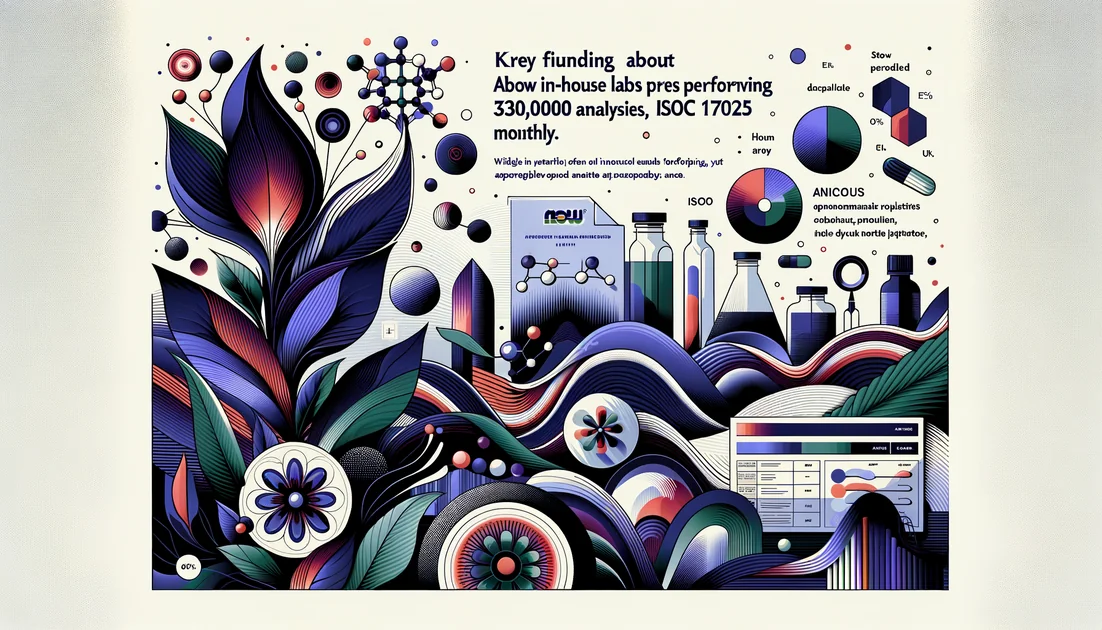
NOW Foods (NOW Health Group)
NOW Foods: The Testing Standard at Value Prices—With a Transparency Blind Spot
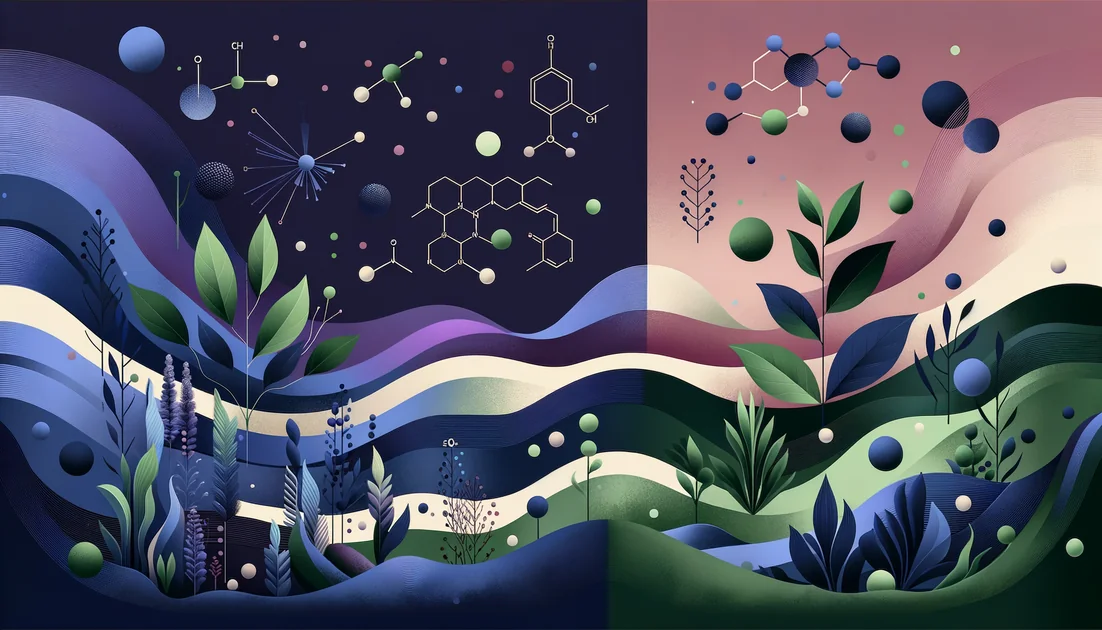
Current (Actual) Body Weight method vs Goal/Ideal/Adjusted Body Weight method
For most healthy, non-obese and athletic readers, calculate protein from current body weight. If you have overweight/obesity or are dosing clinically, use goal/ideal/adjusted body weight to avoid overestimating needs. [1][2][6]

Best for joint pain
UC-II (undenatured type II collagen) — 40 mg daily
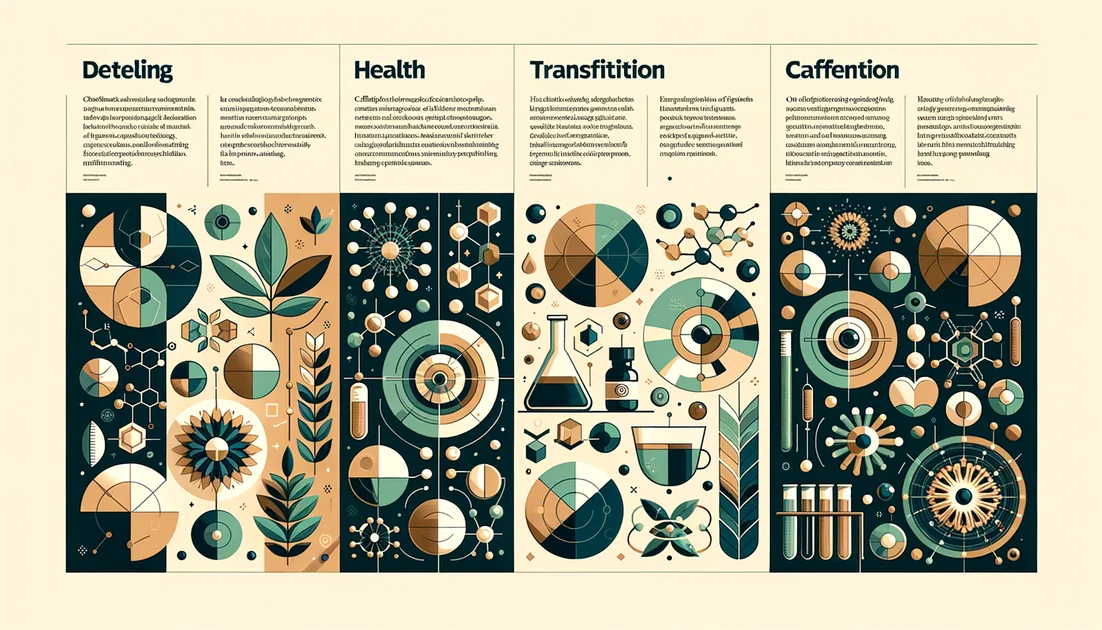
Caffeine
A Sufi monk in 15th-century Yemen sips a bitter brew to outrun sleep; five centuries later, a medic chews a piece of gum that wakes the brain in minutes. The molecule is the same.
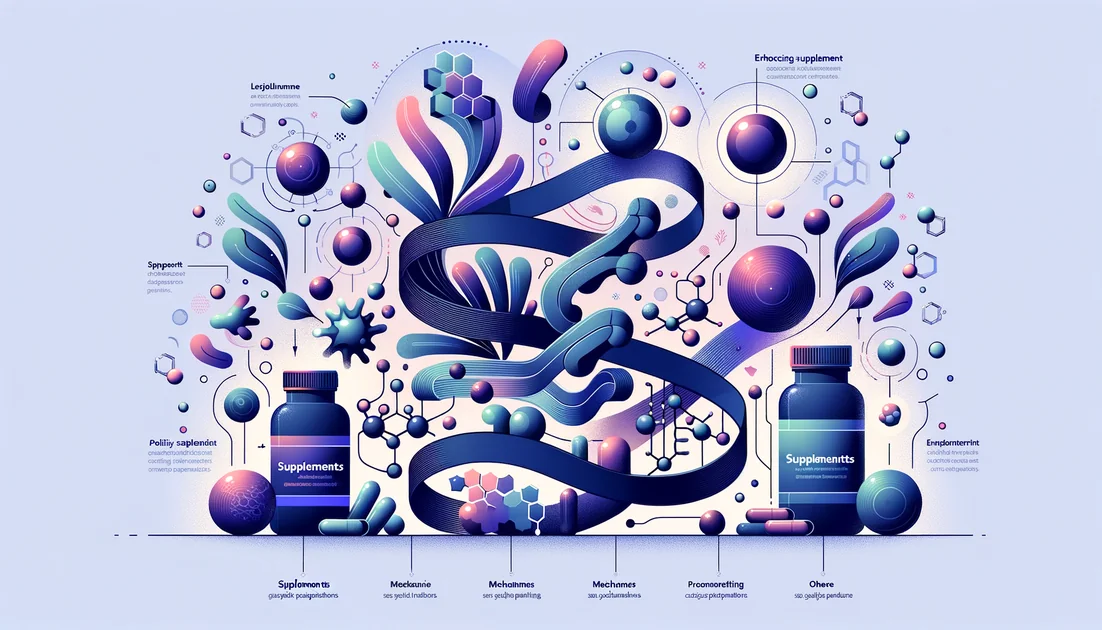

Tocotrienols
The stealthier cousins of vitamin E—built with springy tails that move differently in cell membranes and behave differently in your body.













